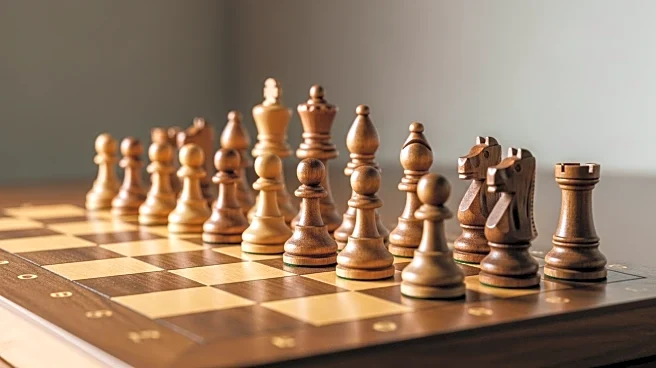What's Happening?
Norwegian Grandmaster Magnus Carlsen recently played an online chess match against ChatGPT, an AI system, and won without losing a single piece. The match concluded in 53 moves, with Carlsen sharing screenshots of the game on social media. ChatGPT resigned after losing all its pawns. Carlsen praised the AI for its opening strategy but noted its failure to maintain momentum. The AI complimented Carlsen's skills, estimating his classical strength between 1800-2000 FIDE or USCF, though Carlsen's actual FIDE rating is 2839, making him the top-rated player globally. Carlsen, known for his exceptional chess skills, has won the World Chess Championship five times.
Why It's Important?
This event highlights the ongoing interaction between human expertise and artificial intelligence in competitive settings. Carlsen's victory over ChatGPT underscores the limitations of AI in strategic games like chess, where human intuition and experience can prevail. The match also reflects the growing interest in AI's capabilities and its role in various fields, including gaming and strategic thinking. For the chess community, Carlsen's performance reaffirms his status as a leading figure, while for AI developers, it presents an opportunity to refine AI's strategic capabilities.
What's Next?
Following this match, AI developers may focus on improving AI's strategic depth in chess and other complex games. Carlsen's engagement with AI could inspire further collaborations or competitions between human players and AI systems. The chess community might see more AI-human matches, providing insights into AI's evolving capabilities. Additionally, Carlsen's recent loss in another tournament suggests he may continue to face challenges from emerging talents, keeping the competitive chess landscape dynamic.









